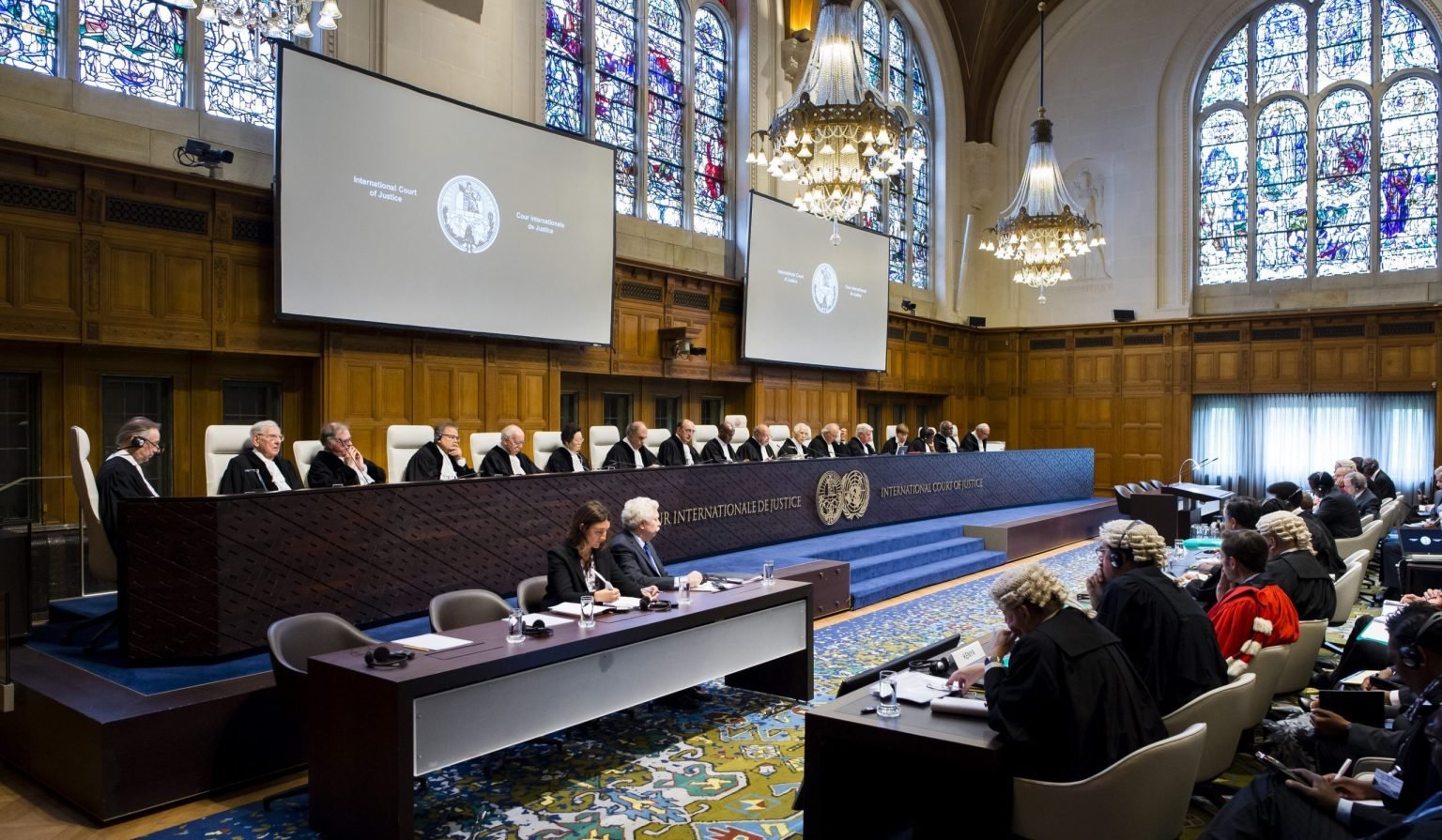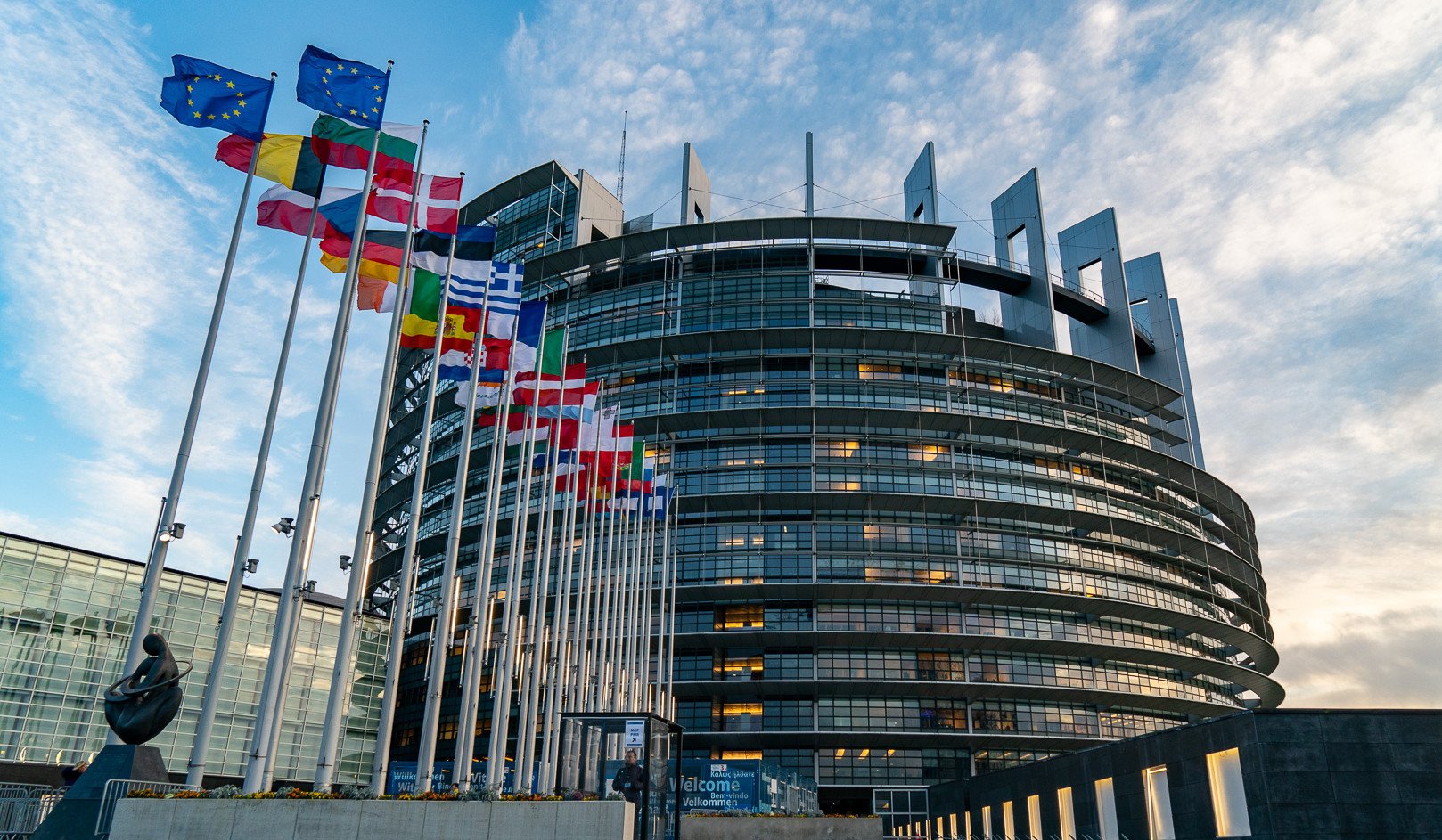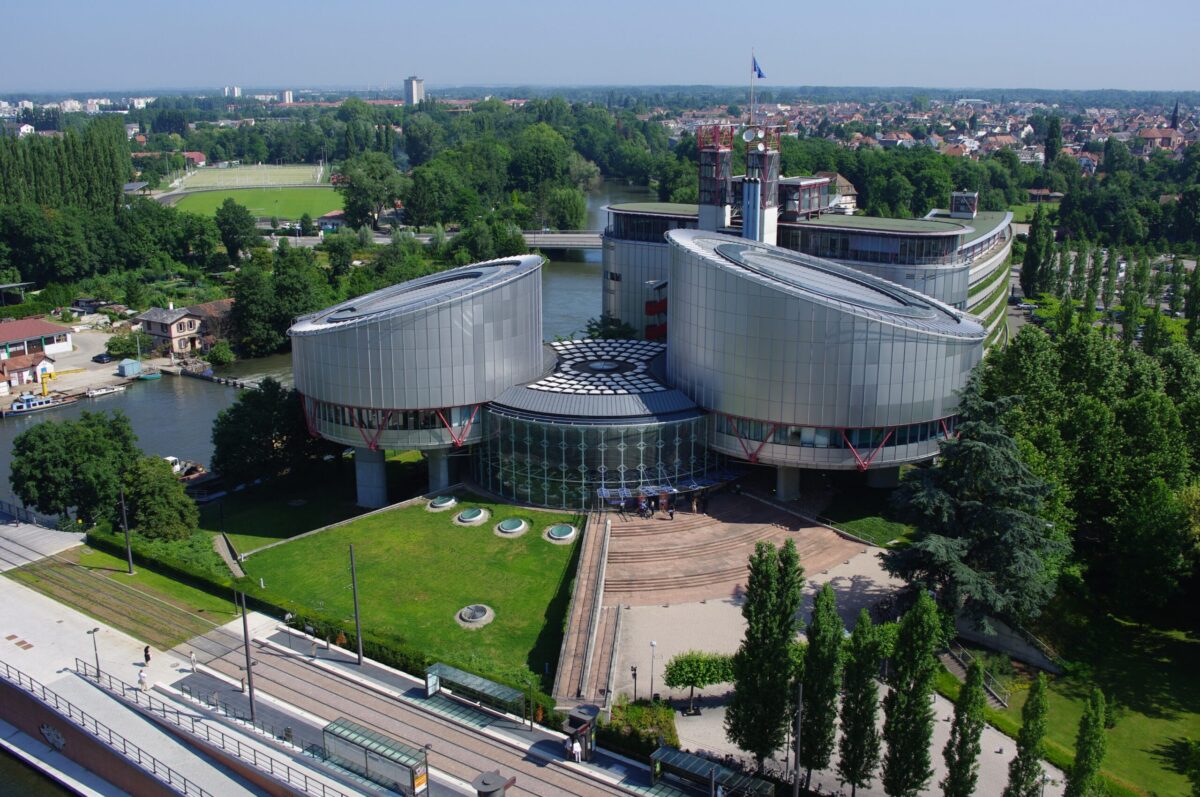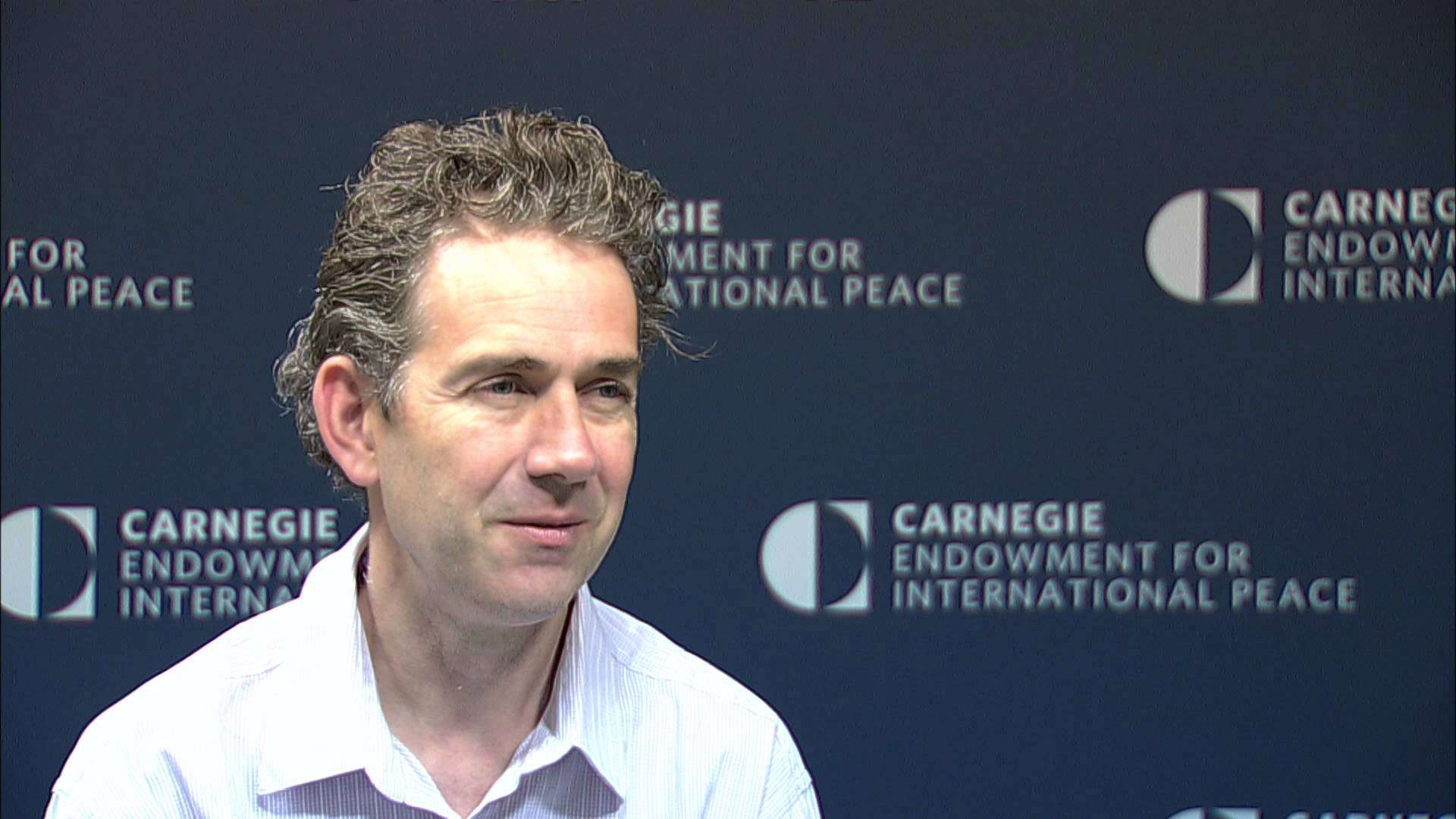Armenian expert on the decision of the Hague court
International Court of Justice decision
“Azerbaijan’s second failure in the Hague court,” Ara Ghazaryan said of the second decision of the International Court of Justice on the application of interim measures against Azerbaijan. An expert in the field of international law, he believes that the court’s decision cannot be called a victory, but is rather “a soft instrument that dictates the situation in the political arena” as a whole.
On February 22, the court ordered Azerbaijan to ensure unimpeded traffic along the Lachin corridor, the only road linking Nagorno-Karabakh with the outside world. Armenia also demanded Azerbaijan restore uninterrupted supply of natural gas to NK. However, this requirement was not satisfied.
Also, by a unanimous decision of the judges, Azerbaijan’s claim against Armenia was rejected, in which it was required to oblige Armenia to “stop mining and transporting mines through the Lachin corridor.”
According to Ghazaryan, the rejection of Azerbaijan’s claim is even more important than the partial satisfaction of Armenia’s claim.
“Ensure free movement along the Lachin corridor.” Armenia’s demand partially satisfied
“According to its obligations under the convention, Azerbaijan is obliged to take all measures in its power to ensure the uninterrupted movement of people, vehicles and goods along the Lachin corridor in both directions,” the court concluded.
The decision states that since December 12, 2022, the connection between Nagorno-Karabakh and Armenia along the Lachin corridor has been disrupted and the import of vital goods hindered, as a result of which there is a shortage of food, medicines and other items “to save lives” in NK.
“Damage can be considered irreparable when the persons concerned find themselves in life-threatening and health-threatening circumstances,” the Hague court noted, emphasizing the urgency of taking action to change the situation.
On December 28, 2022, Armenia filed a petition with the court demanding to oblige Azerbaijan
- to open the Lachin corridor,
- restore uninterrupted supply of natural gas.
The International Court of Justice rejected the second claim, maintaining that there were not enough arguments to prove that Azerbaijan was to blame for the interruptions in gas supply.
On December 7, 2021, the court made another decision at the request of Armenia to apply interim measures against Azerbaijan. With this decision, the court ordered Baku
- refrain from violence and infliction of bodily harm on all those held captive in connection with the 2020 conflict, ensure their equality before the law and safety,
- prevent discrimination against Armenians, including by officials and state institutions,
- take measures to prevent and punish manifestations of vandalism in relation to objects of the Armenian cultural heritage.
All petitions were submitted to the Hague Court within the framework of the suit Armenia against Azerbaijan in connection with violations of the International Convention on the Elimination of All Forms of Racial Discrimination. A similar lawsuit against Armenia was filed by Azerbaijan.
“No evidence presented.” Azerbaijan’s demand rejected
Azerbaijan’s demand to oblige Armenia to “stop mining and transporting mines through the Lachin corridor” stated that the Armenian side violated the International Convention on the Elimination of All Forms of Racial Discrimination by planting mines.
“Azerbaijan has not presented evidence to the court that would indicate that the alleged behavior of Armenia regarding mines is aimed at infringing on the rights of people of Azerbaijani origin,” the Hague court said in a decision.
Official Baku has already reacted to this decision, stating that it is “unreasonable”, and Azerbaijan will continue to demand that Armenia be held accountable for “serious violations of human rights.”
Reaction from Yerevan
The Armenian authorities welcomed the decisions of the International Court of Justice.
The Prime Minister of Armenia stressed that the decision of the Hague court is binding and “the absence of specific actions on the part of Azerbaijan to open the Lachin corridor can and should lead to specific international consequences.”
Referring to the political aspect, Nikol Pashinyan stated that with its decision the court has recognized Azerbaijan’s deception of the international community. Pashinyan said that “for a long time, Baku has been insisting on all international platforms that the Lachin corridor is not closed,” and the court’s rejection of Azerbaijan’s petitio means that “groundless accusations against Armenia about mines have collapsed” at the international level.
“The court clearly recorded the presence of the unit Nagorno-Karabakh according to the tripartite statement of November 9, 2020. In accordance with this decision, the trilateral statement and its provisions also received international legal significance, as well as the fact of the existence of Nagorno-Karabakh and the line of contact,” Pashinyan stated.
The reaction of the Armenian Foreign Ministry emphasizes that by its decision the court
- “fixed the imminent threat of irreparable damage to the rights of Armenians,
- refuted false accusations that Armenia planted mines in Nagorno-Karabakh and surrounding areas,
- ordered to end the blockade of NK by Azerbaijan.
The Foreign Ministry called on international partners to “take active steps to ensure that Azerbaijan immediately implements the court’s decision.”
Arayik Harutyunyan, president of the unrecognized republic, assessed it as an “important achievement” and vowed that, together with Armenia, NK would continue to use all international legal mechanisms to protect people’s rights.
“This decision is another indisputable international legal basis that the people of Artsakh, subjected to racial discrimination and hatred, simply cannot live as part of Azerbaijan,” Harutyunyan wrote on Facebook.
Comment
Lawyer Ara Ghazaryan, who specializes in international law, said the court’s decision was predictable because there was “obvious evidence” of the blockade. Armenia provided irrefutable evidence that the Azerbaijanis are not only impeding the movement of people and goods, but also the duties of Russian peacekeepers.
Ghazaryan called the court’s decision “a historical fact that will be a heavy burden on Azerbaijan as long as this trial continues.”
As for the obligation to comply with the court decision, Ghazaryan warns that “Azerbaijan will be forced to spend more resources on maneuvers, invent new legends, new reasons for not opening the road.” The Hague court has already recognized that Azerbaijan has closed the road, and with its next steps Armenia must show that “the blockade is an instrument of war that Azerbaijan uses against the civilian population.”
Ghazaryan believes that if legal processes continue in this spirit, Azerbaijan can be recognized as an aggressor state.
Regarding the rejection of Armenia’s second claim, the restoration of gas supply, Ghazaryan believes that “the court approached it with reservations”, since only assumptions were presented:
“The court was careful so as not to be accused of prejudging a future verdict or of partiality.”
According to Ghazaryan, the rejection of Azerbaijan’s demands to apply interim measures against Armenia was extremely important. Accusing Armenia of placing mines prohibited by humanitarian law in peaceful settlements, Baku sought to “create the impression and legal grounds that Armenia had committed war crimes.”
Ghazaryan explains that in this way Azerbaijan is trying to “prepare the grounds for justifying its further offensive actions.”
Ghazaryan recalls that in December 2021 Azerbaijan made the same arguments and then also received a refusal. Azerbaijani lawyers claimed “new facts have appeared.” But the motion was rejected unanimously, meaning an “apparently unfounded act” was presented.
“Such judicial decisions destroy the stereotype that Azerbaijan achieves great success by spending great resources, and there is a conspiracy against Armenia. The court decision proved that consistent work bears fruit,” Ghazaryan said.
According to the lawyer, Azerbaijan’s mirroring strategy cannot work inasmuch as it is the offensive, and not the defensive party.
Follow us – Twitter | Facebook | Instagram
Decision of the International Court of Justice






















